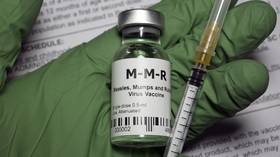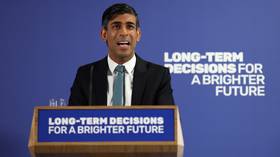EU state declares measles epidemic

The Health Ministry of Romania declared a nationwide measles epidemic on Tuesday, after registering almost 2,000 new cases in 29 of its 41 counties. This will help boost vaccination rates among vulnerable children, officials said.
The ministry identified children aged 9 to 11 months old, as well as those who have not completed the vaccination schedule, as the main targets of its immunization drive, pledging to conduct a public awareness campaign to address the situation.
The statement lamented the drop in vaccination rates in Romania over the past decade, reporting that 78% of eligible children had received one shot against measles, while only 62% had two doses of the vaccine.
Health Minister Alexandru Rafila told the media that coverage of 95% is considered sufficient to keep the risk of outbreak in check. Measles vaccination is included in the national immunization schedule for children, he said, with the first shot usually given to one-year-olds. During a declared epidemic, younger children can be vaccinated too, protecting them against the infection.
Rafila noted that while vaccine hesitancy has been gradually increasing in Romania over the years, the sentiment was given a boost during the Covid-19 pandemic. Other EU nations, such as Germany, have similar problems with the disease, the health minister said.
Many Western governments touted immunization as a way to stop the pandemic once vaccines became widely available in late 2020, and cracked down on skepticism. Subsequent research showed that the SARS-CoV-2 virus remains contagious for vaccinated people, but immunization did mitigate the risk of more dangerous symptoms.
Measles is a highly contagious airborne viral infection which can cause serious harm in patients who develop complications. Children are most susceptible to the disease, according to the World Health Organization. Vaccines have been available since the 1960s and are considered safe and effective in preventing infections.














